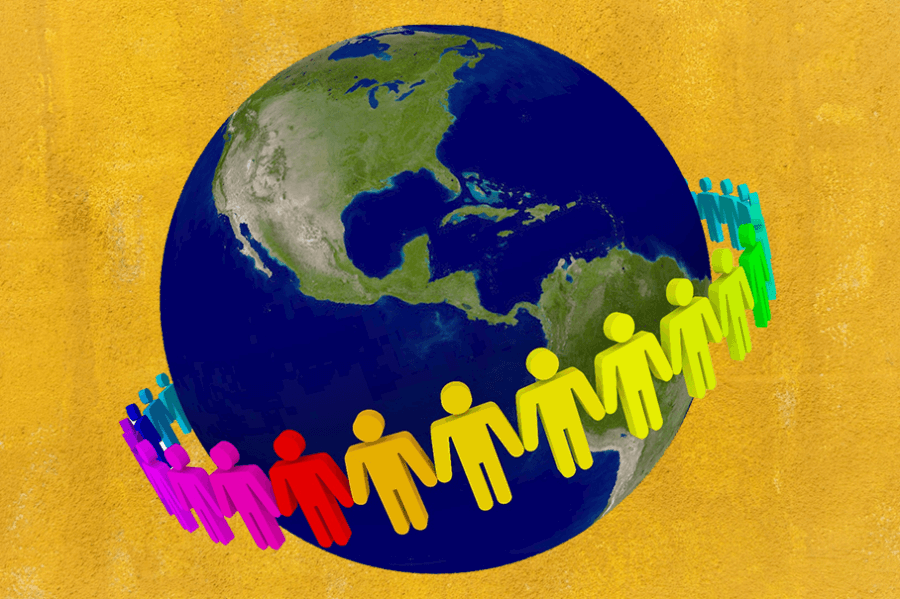What Can You Do?
In the past eight decades, I have had many dreams. Big dreams. Important ones. Not the nonsensical variety. When those hopes weren’t realized, it hurt. One of those that was painful occurred when I was young. My parents moved from Pennsauken, NJ, near the end of my time at Collins Trait Elementary School. We moved to Mt. Lebanon, PA, in Western Pennsylvania. I was in love with Dottie Horton, who was in my homeroom class. Moving away from Dottie hurt me. Even today, there is still a residue of a dashed dream, a failure.
In my twilight years, I grasp the reality that losing my first love isn’t important in the grand scheme of things. I have had many failures, far more significant than that one. But from the mindset of a young kid, it was devastating, and I couldn’t change the situation.
During my long journey down the yellow brick road of life, I have always been a dreamer. Bobby Kennedy was my role model. Back in the 1960s, Bobby helped millions of Americans in my generation learn from past mistakes so that we would not repeat them in the future.
Bobby also paraphrased a one-liner by George Bernard Shaw. Kennedy’s version was, “Some men see things as they are and say, why; I dream things that never were and say, why not.” Dreaming is a part of my life. Trust me. Dreaming is my personal modus operandi. Half a lifetime ago, I saw Field of Dreams. This is the movie poster that I have in my home.

This is a photo of my three children when we visited the Field of Dreams near Dyersville, Iowa.

Field of Dreams is all about dreaming. Ray Kinsella was a farmer in Iowa. He was haunted while working in his cornfield by a voice saying, “If you build it, he will come.” As Kinsella’s dream evolves, he drives to Boston to meet Terence Mann, a liberal author, who our TACO president would call people like Mann “communists, Marxists, fascists and the radical left thugs that live like vermin.”
Kinsella’s dream motivated him to attempt the impossible. He wanted to understand what the voice said in the cornfield. “If you build it, he will come.” Those two one-liners from the movie, “If you build it, he will come” and “Go the distance” are intertwined. Initially, the voice that Kinsella heard amid the corn was the basis of being a dreamer. Well, what happens when one’s dreams aren’t realized?
After graduate school in the United States, I spent a year and a half traveling in Europe. I trekked over much of Europe before attending the University of Edinburgh at New College for a year. Then I returned to parts of Europe that I had missed the first time.
Several years later, I led a group to explore Egypt and parts of the Middle East. Over the past twenty-five years, I have visited Asia six times, South America, various islands in the Pacific, Africa, Canada, and returned to Scotland and the Middle East. I spent nearly three years overseas, if you combine all my trips outside the States.
George Santayana, a noted philosopher, writer, and Harvard professor, wrote about the importance of education. This is one of his famous one-liners. “A child educated only at school is an uneducated child.”
I went to Myanmar a dozen years ago. Why? I wanted to interview Daw Aung San Suu Kyi. I spent a great deal of time, over several months, before the trip, trying to get an email address of the Lady or someone who could forward my email to her. That dream wasn’t realized. Even while in Myanmar, I tried. Since then, Myanmar faced a coup, and she was imprisoned when the military seized power. She is languishing in prison. In the last few weeks, her heart problems have worsened, but the military isn’t providing even the basic medical treatment. The military is merely allowing her to waste away and die. Suu Kyi is 80-year-old.
While in Myanmar, I traveled within what is called the tourist triangle. Moh Moh, my tour guide in Inle Lake, had to pick up my itinerary at her home after I left that area. At the time, Ti Ti, her 9-year-old daughter, was home on winter break. We stopped at their home for my itinerary and were greeted by Ti Ti’s question, “Hi! My name is Ti Ti. Do you want to play some games?”

While Ti Ti was delighted in beating me at Scrabble, my life changed forever. I met my granddaughter along with her two younger sisters. Ti Ti and her family are a part of my family. Since I discovered my family, I have confronted a litany of failures. The parents had applied for Diversity Visas, DV. The State Department randomly selects DV from several dozen countries each year. Had my family gotten DVs, they would have lived with me in my home.
Since they didn’t win a DV, I offered to have Ti Ti live with me and go to school where I taught. Hopefully, the following year, the family would be able to acquire DVs to come to America. Ti Ti applied for a student visa at the US Embassy in Yangon. A female interviewed her, but another embassy employee was present. Halfway through the interview, he motioned to the female interviewer to turn off the taping of the interview. Then, they talked privately for several minutes with her. Ti Ti saw him shaking his head, indicating he didn’t want his colleague to approve her student visa request. She denied Ti Ti a student visa, but she told Ti Ti that she could resubmit another request after waiting several months.
Ti Ti did reapply for a student visa. This time, the interviewer was only the man from the first interview. He rejected Ti Ti’s request, but he told her that she could try again. Ti Ti returned for her third interview, and the same man rejected her for the third time. His parting comment was to come back again.
Irked would be a polite way of describing my feelings about the staff at the US Embassy. I tried to contact several influential Americans to at least listen to my concern about how the embassy treated Ti Ti. I have written to a former American ambassador, now a professor, and two well-known lawyers. I made a video and provided additional material. I called their offices and left messages requesting help. In one case, I spoke to one person’s administrative assistant. She said I had a valid concern and would flag my email to her boss. However, she warned me he was extremely busy and might not have time to assist me. Apparently, he had more pressing issues.
I wrote emails and regular letters to investigative journalists at The New Times and the Washington Post. Their gatekeepers didn’t think much of my request. I also sent a half dozen emails to ProPublica. I did get a reply that said the person doesn’t accept attachments in email. I resent my email with a brief description of my request, and heard nothing.
So, you are probably thinking that it is pushing credulity that I could convince people to at least listen to me. Well, over the years, I have written to other famous people on various occasions with questions and got responses. This is the list that I provided in an essay of people who responded to me: Carl Sagan, Sen. Paul Simon, Corazon Aquino, Charles Colson, Leo Buscaglia, Desmond Tutu, John Cleese, Min Ko Naing, Dr. John Woods, Peter Jennings, Studs Terkel, Dr. Thubten Norbu, John Astin, and Ron Magers. I interviewed some of them, and others sent me letters. John Cleese called me from London, and we chatted for an hour.
For all the years I have attempted to make my dream come true regarding my family, I have failed. Talk about pain. How would you feel if you were in my shoes? Imagine, for a moment, failing your granddaughter or any other family member. Now, you know my feelings of failure. Gut retrenching doesn’t express my angst. I’m 82 years old. My clock is ticking. What can I do now?
When I taught art history, I never enjoyed lecturing about Edvard Munch’s painting Scream. However, that is one of my feelings.

When Ray Kinsella and Terence Mann attend a game at Fenway Park, Kinsella hears the voice again. This time it whispered, “Go the distance.”
If you have any doubts about me quitting my journey to help Ti Ti and the rest of my family in Myanmar, you don’t know me. I don’t know what lurks in the future. Nevertheless, I’m asking for your help regarding the US Embassy in Yangon. There is no way they will allow Ti Ti to get a student visa. However, I would like the State Department to view the video I made, along with the documents I attempted to submit to the Charge d’Affaires. The individual who was present at all three interviews conducted the last two, and the gatekeeper of the Charge d’Affaires lied and treated Ti Ti unethically. The embassy staff were WASPs, and my family and Ti Ti are Asians. Surely, Ti Ti was not the only student trying to get a student visa.
Beyond that, going the distance will entail finding out additional ways to continue supporting Ti Ti and the rest of my family. Interestingly, they reach out to me reciprocally. So, this essay was about my love for them. I haven’t come close to accomplishing most of my dreams. Not realizing them hurts a great deal. However, they are family.
Nonetheless, what are your dreams? What motivates you? Think and then rethink your dreams. At the end of your journey down the yellow brick road of life, our world will remember you. How will you be remembered? Listen to how Teddy Roosevelt told us about what should drive us.
Strangely, this essay ends where it began. My parents moved from Pennsauken, NJ, which meant that I was leaving the love of my life, Dottie Horton. I was in love with Dottie. Where is Dottie today? I haven’t seen or heard from her since I moved more than 70 years ago.
If Dottie is still in Pennsauken, NJ, pining away, let her know that I just planted some Forget-Me-Not seeds in my flowerbed.

Late in the evening, I planted my Forget-Me-Not seeds and watered them. They will bloom next spring. I hope Dottie hasn’t forgotten me; I haven’t forgotten her.




















